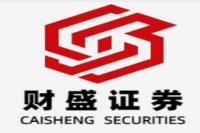China's New Sustainable Disclosure Standards: A Deep Dive for Businesses
Meta Description: China's new enterprise sustainable disclosure standards, implementation, key features, international alignment, and implications for businesses. Learn about the "Basic Principles" and its impact on ESG reporting in China.
This isn't just another dry corporate announcement; it's a seismic shift in how businesses operate in China. The release of the Basic Principles for Enterprise Sustainable Disclosure (Trial) by nine major governmental departments, spearheaded by the Ministry of Finance, marks a pivotal moment. Forget about vague promises – this is tangible action, a clear signal that environmental, social, and governance (ESG) factors are no longer a niche concern, but a core component of doing business in the world's second-largest economy. Think of it as the starting pistol for a race towards greater transparency and accountability. This isn't just about ticking boxes; it's about fundamentally reshaping corporate strategy and building a more sustainable future. This detailed analysis will equip you with the knowledge to navigate this new landscape, offering practical insights and expert commentary to help your business thrive under these evolving regulations. We'll unravel the intricacies of the guidelines, explore the implications for different industries, and provide actionable steps to ensure compliance while simultaneously leveraging the opportunities presented by this landmark initiative. Are you ready to embrace the future of sustainable business in China? Let's dive in!
Sustainable Disclosure: Key Principles and Requirements
The Basic Principles aren't just another set of rules; they represent a carefully considered approach, blending international best practices with uniquely Chinese characteristics. The drafting process, as explicitly stated, prioritized a pragmatic approach, drawing inspiration from global standards while tailoring them to the specific needs and context of the Chinese market. This "take the best, make it our own" philosophy is evident throughout the document.
The document cleverly balances international alignment with domestic realities. While taking cues from global initiatives, it's designed to fit seamlessly within the existing regulatory framework. For instance, its compatibility with the S1 accounting standards is critical, ensuring a smooth transition and preventing unnecessary complexities. This thoughtful integration signals a commitment to a holistic and practical approach rather than a sudden, disruptive overhaul.
What does this mean in practice? The Basic Principles are primarily voluntary for now, allowing businesses time to adapt. However, this shouldn't be interpreted as a loophole. It's a strategic move, allowing companies to gain experience and prepare for the eventual mandatory implementation. This phased approach demonstrates a pragmatic understanding of the challenges involved in corporate transformation. Think of it as a 'soft landing' – gradually introducing a new framework to increase buy-in and successful adoption.
One key takeaway is the emphasis on "materiality." This means companies will need to focus on disclosing information that is genuinely relevant to their operations and stakeholders. This isn't about creating massive, unwieldy reports; it's about identifying the issues that truly matter and reporting on them transparently. This focus on materiality reflects a global trend towards more targeted and effective ESG reporting.
Furthermore, the document outlines core principles for information quality, ensuring accuracy, completeness, and timeliness. This is crucial for maintaining credibility and building trust with investors and other stakeholders. The emphasis on quality suggests a long-term commitment to robust ESG reporting, not just a superficial compliance exercise.
Dissecting the "Basic Principles": A Closer Look
Let's delve deeper into some specific aspects:
- Scope and Applicability: While currently voluntary, the eventual expansion of the scope and mandatory implementation is almost certain. Businesses should proactively prepare for this eventuality, regardless of the current voluntary status.
- Disclosure Objectives: The Basic Principles clearly define the aims of sustainable disclosure, placing emphasis on transparency, accountability, and informed decision-making. These aims are not merely aspirational; they lay down the groundwork for a more sustainable and responsible business environment.
- Importance Standards: The standards for determining the materiality of information are detailed, providing clear guidance to companies on which aspects of their operations require disclosure.
- Structure and Format: The document provides clear structural guidance, ensuring consistency and comparability across different reports. This is vital for effective analysis and benchmarking.
| Feature | Description | Significance |
|----------------------|-------------------------------------------------------------------------------------|-----------------------------------------------------------------------------|
| Voluntary Implementation | Currently, companies can choose to adopt the standards. | Allows for a smoother transition and learning curve. |
| Materiality Focus | Emphasizes reporting on information relevant to the business and its stakeholders. | Promotes efficient and effective reporting, avoiding unnecessary complexity. |
| International Alignment | Draws inspiration from global standards while adapting to the Chinese context. | Facilitates international comparability and reduces reporting burdens. |
| Phased Approach | Gradual implementation allows companies time to adjust and prepare. | Minimizes disruption and maximizes successful adoption. |
Navigating the New Landscape: Practical Steps for Businesses
The Basic Principles are not just a regulatory hurdle; they're a catalyst for change. Smart businesses will view this as an opportunity to enhance their reputation, attract investors, and improve their overall sustainability performance. Here are some practical steps businesses can take:
- Conduct a Materiality Assessment: Identify the ESG issues most relevant to your business and its stakeholders. This forms the foundation of your sustainable disclosure strategy.
- Develop a Reporting Framework: Create a system for collecting, analyzing, and reporting on your ESG performance. This should align with the Basic Principles and best practices.
- Integrate ESG into Business Strategy: Don't treat sustainability as an add-on; embed it into your core business strategy. This will lead to more impactful and integrated reporting.
- Engage with Stakeholders: Communicate openly and transparently with investors, customers, employees, and other stakeholders about your sustainability initiatives.
- Seek External Expertise: Consider engaging with consultants or experts in sustainable reporting to ensure compliance and best practices.
FAQ: Addressing Common Concerns
Q1: What happens if my company doesn't comply with the Basic Principles?
A1: Currently, there are no direct penalties for non-compliance as the standards are voluntary. However, failure to adopt best practices in sustainable reporting could negatively impact your reputation, investor confidence, and overall business performance. The future will likely see mandatory implementation and enforcement.
Q2: How does this impact smaller businesses?
A2: The phased approach and focus on materiality considers the varying capacities of different-sized businesses. Smaller companies can focus on the most relevant aspects of their operations. However, proactively engaging with the guidelines is crucial for long-term success.
Q3: How does this align with international standards?
A3: The Basic Principles demonstrate a clear commitment to international best practices, while adapting them to the Chinese context. This ensures compatibility and reduces the burden of complying with multiple sets of standards.
Q4: What are the long-term implications of these standards?
A4: The long-term impact will be significant. These standards pave the way for a more sustainable and responsible business environment in China, attracting foreign investment and promoting economic growth.
Q5: Are there any specific industry-related guidelines?
A5: While the Basic Principles provide a general framework, more specific industry-related guidelines are expected in the future. Companies should monitor developments in their sectors closely.
Q6: How can I stay updated on changes to these standards?
A6: Stay informed by regularly checking the websites of the Ministry of Finance and other relevant government agencies. Professional organizations and industry publications also provide valuable updates.
Conclusion: Embracing a Sustainable Future
China's new sustainable disclosure standards mark a turning point. These aren't merely compliance requirements; they're a roadmap to a future where businesses are not only profitable but also environmentally and socially responsible. By embracing these principles and actively participating in this transition, businesses can not only meet regulatory demands but also gain a competitive edge, enhance their reputation, and contribute to a more sustainable future. The voluntary phase provides a golden opportunity for businesses to prepare, adapt, and even lead the way in shaping a more responsible and sustainable business landscape in China. The time to act is now. Don't just react – proactively shape your future.



